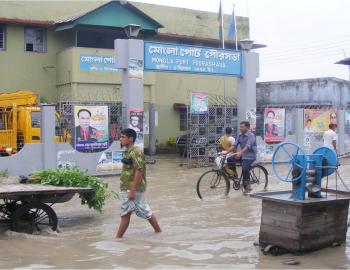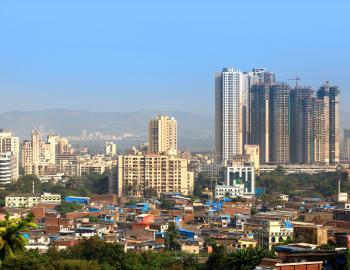REPORT: Addressing vulnerability to the health risks of extreme heat in urbanising Ahmedabad, India
REPORT: Addressing vulnerability to the health risks of extreme heat in urbanising Ahmedabad, India
Share this:
Resource detail:
Date:
Author:
CDKN Global
Country:
India
Tags:
Ahmedabad,
climate vulnerability,
early warning system,
extreme heat,
heat action plan,
heatwaves,
cities
Extreme heat events are having a significant impact in India, where summer temperatures are historically high. A team of academic, health and environmental groups, led by the Natural Resources Defense Council (NRDC) and the Indian Institute of Public Health (IIPH), have worked together with the Ahmedabad Municipal Corporation (AMC) to develop a Heat Action Plan which aims to prepare people for increasingly extreme heat in the city of Ahmedabad. It does this through community outreach and raising public awareness, early warning systems and capacity building among health-care professionals.
Key messages
- Climate change is fuelling more intense and frequent heat waves in India. A new scale of coordinated action is essential to protect communities, especially their most vulnerable members, from the dangerous health effects of extreme heat.
- In Ahmedabad, western India, strong local government leadership enabled the highly effective implementation of a pilot Heat Action Plan – the first of its kind in South Asia – and its continuation following completion of the pilot project.
- The Plan, which is based on robust scientific research, builds public awareness of the risks of extreme heat, trains medical and community workers to prevent and respond to heat-related illnesses, and coordinates an interagency emergency response effort when heat waves hit.
- Sharing international experiences and best practices helped change the perception among project stakeholders that heat was not a significant health threat. However, further awareness-raising is still necessary to convince the general public.
Read the full report here.



